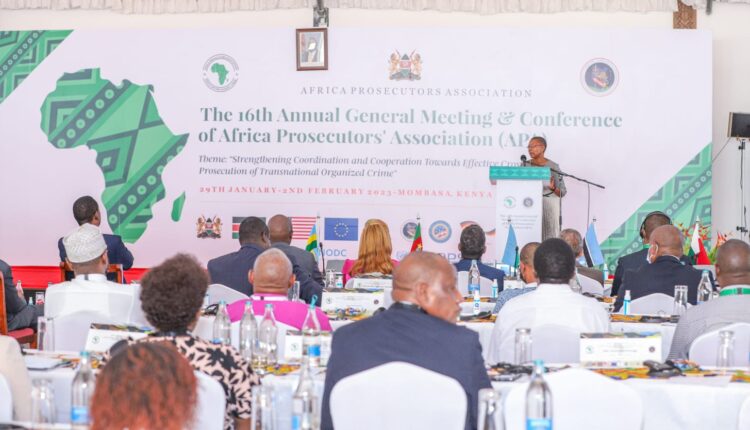Mombasa (Kenya) – Morocco’s strategy in the field of the fight against terrorism and violent extremism was presented Tuesday in Mombasa, Kenya, within the framework of the 16th annual conference and meeting of Africa Prosecutors Association (January 29 – February 02).
Salah Tizari, the Attorney General of the King at the Casablanca Court of Appeal, stated during a speech at the conference that Morocco is being represented by a delegation led by Jamila Sedqi, Advisor to the Presidency of the Public Prosecutor’s Office, Advocate General at the Court of Cassation, and Magistrate at the Administrative Tribunal of the African Union.
The Kingdom has implemented a number of social, cultural, and development measures in an effort to combat poverty, marginalization, and social exclusion because it is aware of the impact that social imbalance has on the culture of extremist thought, according to Tizari.
Increasing the number of local councils of ulema, establishing a council of ulema for Moroccans who live abroad, and training murshidates are just a few examples of how the religious field reform is an important strategy in the fight against violent extremism.
In this sense, Tizari highlighted the efforts of information, communication, and awareness of citizens on the dangers of violent extremism. Tizari also focused on the establishment of an alternative value system to that conveyed by the carriers of violent extremist thought.
Prevention remains the best response to terrorism, violent extremism and other threats to peace and security. pic.twitter.com/PtCyqM8mT5
African Prosecutors Association #16thAPAConference@ODPP_KE @CTP_Kenya @EUInKenya @AGA_Africa— Her Excellency (@AfricanLady_) January 31, 2023
A criminal policy that is complementary to the security policy has been established in Morocco through the strengthening of the legal framework to punish the various forms of terrorism and its financing, as well as the establishment of an effective security and judicial cooperation to address threats to national security. He also emphasized the crucial role of proactive security governance, which has produced positive results and consists of dismantling a group of terrorist cells before they act.


